Archive
2008

Mom and dad or egg and sperm cell?
What consequences does the Norwegian policy for biotechnology have for the individual? Has God been replaced by genetic determinism? And why can’t two friends get help to make a baby together? These were questions that were addressed at the conference "The future of assisted reproduction" on June 2, 2008.

White-collar beauties and country girls
A small group of urban middle-class women enjoy success in foreign companies in China. But the great majority of Chinese women hired in these companies still receive small pay checks.

The invisible children
Was it a boy, or a girl? What happens when the answer to the very first question is “we’re not quite sure”? Marit Vaula Rasmussen is doing research on the intersex children, children who are born with an indefinite sex.
Norway's first professor in men and masculinities research
More men in this particular academic field and more masculinity is what the Norwegian research community can expect after the appointment of Norway’s first professor in gender equality and masculinity research at the Centre for Gender Research at the University of Oslo.
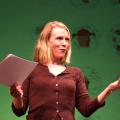
Lively gender research conference
Is it true that Swedish feminists are angrier than the Norwegian? Why do Russian women think that gender equality is more typically Norwegian than anything else? How come transsexuals seem to be rather uninterested in sex? These were just some of the issues that were addressed at the Gender Research Programme’s closing conference.

A high female ratio changes attitudes
The level of female political representation affects our attitudes toward female politicians more than vice versa, claims political scientist Johannes Bergh in a new dissertation.

– Physics can be feminine
The world will be a better place if more girls become engineers, says Camilla Schreiner. She does research on the connection between gender and choosing a career within the Natural Sciences.

Modern sex, –traditional gender roles
Can liberal sexual practices exist in a patriarchal society? Apparently yes, as that is the situation in today’s Russia. Young women are rapidly changing their sexual behaviour, but gender roles are still polarized, according to Russian sociologist Anna Temkina.
Smørbrød and the Stock Exchange: Navigating Norwegian Culture
Lauren Osen came to Norway to study the country’s recent gender quota law for ASA companies’ corporate boards, but also had to contend with the peculiar lunch habits of the natives!
Raging pop clichés
Shaking buttocks, homophobic hip-hoppers, pimped-up lady singers and hypermacho cock rock… The world of music videos is abundant with clichés regarding gender, race, class and sexuality. But according to musicologist Marita Buanes, there are exceptions that challenge this.
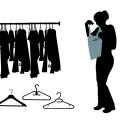
Women's clothes - men's desire
According to the teaching, Laestadian girls who dress inappropriately “stimulate the lust of the flesh”. This may lead both girls and boys to perdition. Through the length of their skirts girls convey their loyalty or distance to the congregation, according to religion historian Torjer Olsen.
2007
«Diversity - not equality»
Norway’s demand for 40 per cent female board members is unique. How could such a radical gender equality measure be implemented in a business world which is opposed to quotas? And by a minister from the anti-quota right wing party Høyre?
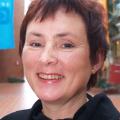
Can women in hijab be emancipated?
– The debate surrounding the use of hijab may indicate that sexuality currently is the main gender equality issue, while economy appears to be of less importance. These are the words of Berit Gullikstad, who has analysed the Norwegian debate over hijab that followed France’s ban in 2003/2004.
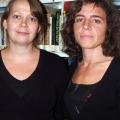
Want to close knowledge gaps
What method should be used when counting the victims of human trafficking? How does the average person feel about buying sex? And where do we learn about prostitution? Despite extensive research on prostitution there are still huge knowledge gaps. A new Nordic research project will gather, systematise and discuss what we think we know about ”Prostitution in the Nordic Countries”.

Simply in love
”Prostitutes.” ”Traitors.” “Contagious.” “Backward.” According to the myths of the post-war era, Norwegian girls who were involved with German soldiers during WWII were morally corrupt and inferior human beings. Historian Terje A. Pedersen believes that most of them simply fell in love.

The mystery of natural sciences
- Women leave the field of science, both during and after the studies. But why? A new research project at the University of Oslo aims to find out.

A Stranger Among Us
Asking a group of feminist activists if I, the stranger, can join their lunch table still inspires the sort of anxiety experienced by “the new kid” trying to find a seat in a crowded high school cafeteria, writes American sociologist Kimberly Creasap after her summer in Scandinavia.
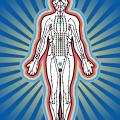
New times – new genders?
«A goodie bag» in the study of what body and gender means in our society and culture, says historian of religion Anne Kalvig about alternative therapy and neo-religious groups.
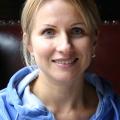
Young woman seeks better life
What do Eastern European women hope to attain when they come to Norway as prostitutes? In a new master’s thesis Irina Polyakova presents these women’s hope, reality and opportunities.
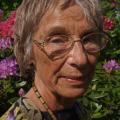
Passionate pioneer
We have too rarely asked ourselves what it has meant to be a man throughout history. This is something we must uncover! Norway's first and most renowned women's historian is ready for new challenges. And she won't stop until someone says "Gabrielsen".

Children – a free choice?
While women in other European countries choose career over family, Norwegian women keep the birth rate up. To them, the question is not if, but when they will have children, says social anthropologist Malin Noem Ravn.

Dad is rewarded – mom is punished
Marriage and children have the opposite effect on the wages of men and women: married men earn more than unmarried men, while mothers lose in comparison to women without children. But it is not the employer's fault, according to professor Geir Høgsnes. He warns against focusing too much on discrimination in the equal pay debate.
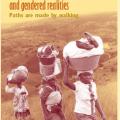
One size fits nobody
What is the use of a right to education if one is unable to go to school because of menstruation? - Human rights is the most important project of our time. But if they are to be realized, then the tools must be adapted to the specific context, says Anne Hellum. The Norwegian law professor is one of four editors of a multi-national book that looks at the justice-based women- and development policies from below and from within.

A real rape?
What were you wearing? Did you invite him in? And were you really forced? The questions that meet raped Liberian women refugees are not that different from Norwegian circumstances according to Sæba Bajoghli, who has written a Master’s thesis on rape in one African refugee camp.

The solution is daddy
The old measures cannot take us all the way. The key to economic gender equality is the father, claims economist Hilde Bojer.
Completely natural and potentially deadly
Getting pregnant can be dangerous, if you are poor and live in a country where women are little valued. In Somalia and Sierra Leone, every seventh woman dies during pregnancy. Berit Austveg, specialist in community medicine, has written a book about what she calls the world’s greatest social injustice: maternal mortality.
2006
Caring men in FOCUS
In a work/life study, for the Fostering Caring Masculinities project (FOCUS), researchers from five European countries have confirmed that each country wants to see more men taking parental leave to spend time caring for their children.

Girls from minority backgrounds taking part in sports
Girls from ethnic minorities, in Norway, have a below average participation rate in organised sports. Åse Strandbu has studied those who do take part.

84.5 per cent of a man's wage
Equal pay for equal work has been a demand for several decades. The differences, however, are still great. Why?

Rekdal on Moi and Rekdal
Elin Havelin Rekdal was looking for a topic to write her masters thesis on. She noticed a book exhibited in Sunndalsøra Library, in the western part of Norway: “What is a woman?” by Toril Moi. Does anyone really have the answer to that question, Rekdal wondered. She is now doing her doctorate on Toril Moi and her books.